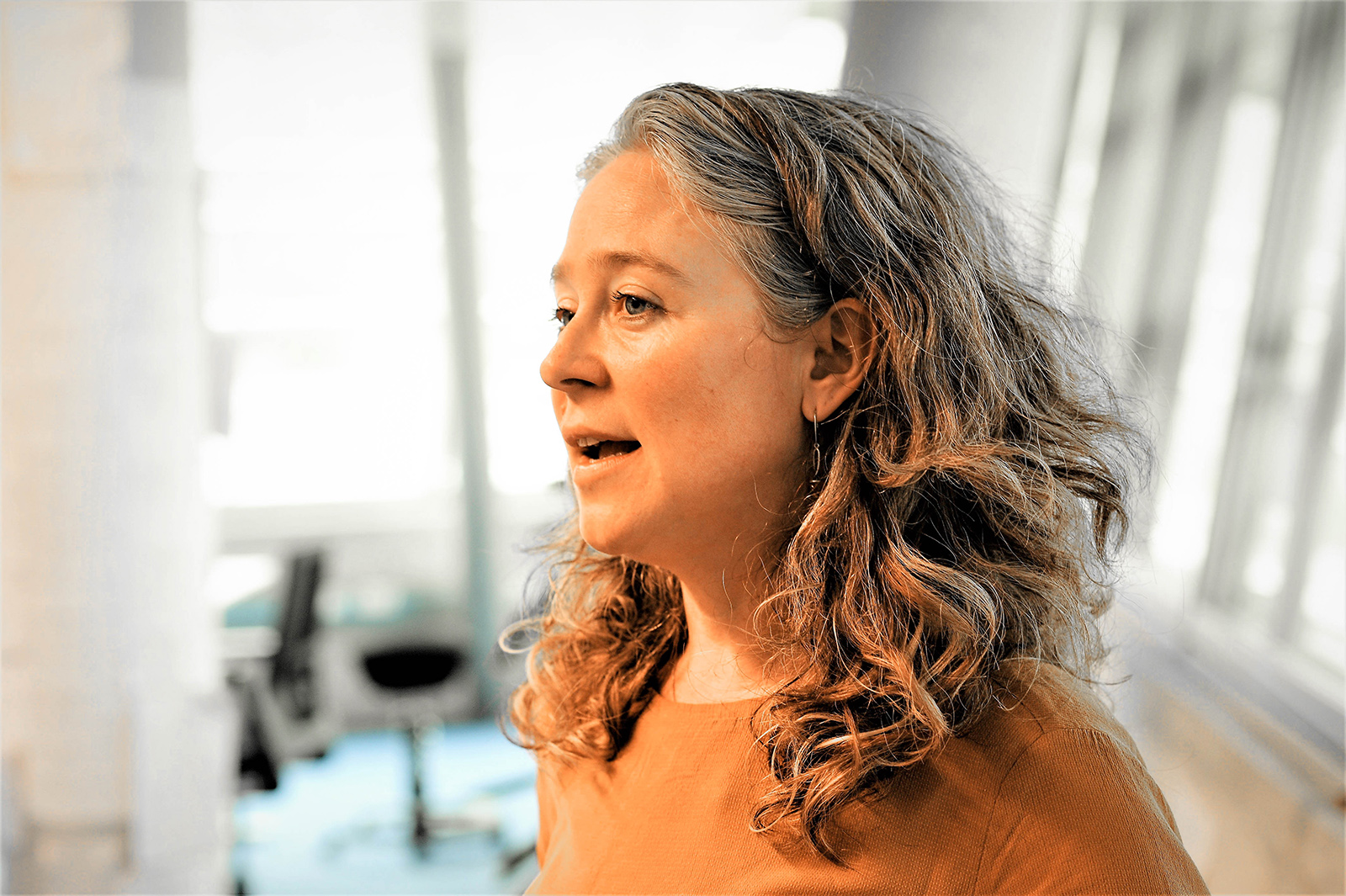Editor-in-chief Saskia Bonger was in the auditorium at a debate about the Nashville statement. She wants to explain one aspect: why Delta did not avoid unrest.
(Photo: Marjolein van der Veldt)
“TU Delft professor also signed the Nashville declaration,” Delta headlined in January. What followed was a wave of indignation about this token of intolerance toward homosexuality and transgenderism. There were views, calls for positions, demands for dismissal, consultations, personal conversations, a public penance and plans for a better future.
Under all those points I can put a link to a publication by our hand – yes, we wrote a lot – but I will spare you all that. Here and there I notice something suppressed yawning when the subject comes along.
Why am I bothering you now? I want to explain something.
Tuesday evening, May 14, Studium Generale organized a meeting to foster mutual understanding now that the dust of the Nashville declaration has settled. The panel included diversity officer Rinze Benedictus, Cecile Calis of the LGBT+ community of TrueU, and Humanist Association chairman Boris van der Ham. But also, and I find that especially courageous, Nashville professor Marc de Vries himself. After a tip, we were the ones who linked his name to the Nashville statement, but not until we had informed him about it and questioned him.
This publication was preceded by a discussion by our editorial team: do we report on this with all the unrest and possible personal damage that entails? Or do we not write anything because the signature of one person says nothing about TU Delft and therefore has too little weight, and we also do not want to offer a platform for intolerance?
We chose the first option, but what was our rationale?
In my previous editorial, I wrote about the importance of transparency and openness. That is one argument for publication, but too little by itself in this case. We found it significant that De Vries was referred to as professor rather than as a private person. He later said that that had never been his intention, but in his first reaction, he did not mention that. And so we reasoned: a professor is a public figure with an exemplary function, who works with students and colleagues on a daily basis. You can hold someone like that responsible.
And then this professor holds (partly) the Christian Philosophy of Technology chair. If TU Delft really stands for diversity and inclusiveness, as it claims, then texts that instruct Christians to condemn homosexuality and transgenderism do not fit well with that aim at first sight. It would not be surprising if a university at least wanted to make sure that a professor kept such opinions to himself when teaching about Christian Philosophy. Or the university refrains from doing that because everyone can is entitled to their opinion, precisely because diversity (of opinions too) is a core value. It is important to be clear about how that works at TU Delft because in an increasingly diverse community, visions and opinions will often clash.
Finally, if TU Delft really wants its Vision on Integrity to be a ‘living document’ that does not end up in a desk drawer, then we need examples of this kind to serve as a test case in which everyone shows what he is worth in an open discussion. I see it as a task for Delta to provide a stage for that.
Studium Generale has the same concept of tasks, and so it is nice that it keeps the conversation alive. It is courageous that those involved dared to question and contradict each other in the auditorium and that the university in the person of Benedictus also took a vulnerable position and honestly admitted that it does not know all the answers. It is therefore a great pity that so few people wanted to sacrifice their evening to come and listen and join in the conversation. TU Delft deserves more students and staff who find the discussion about diversity and freedom of expression worth conducting.
Do you want to respond? E-mail me at my e-mail address below or visit our channels on Facebook, LinkedIn or Twitter.
Do you have a question or comment about this article?
s.m.bonger@tudelft.nl


Comments are closed.